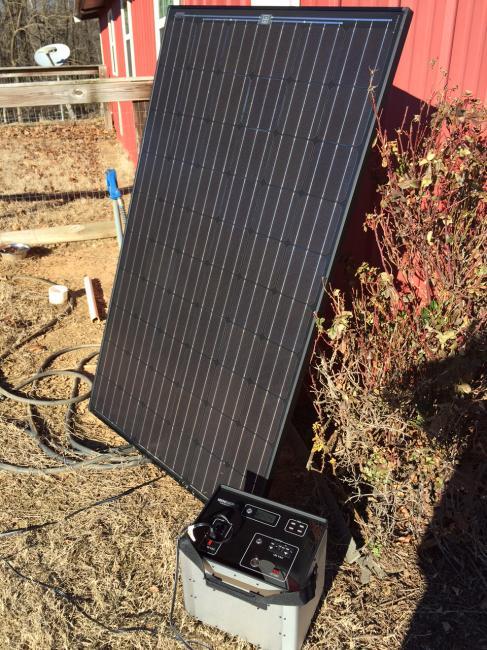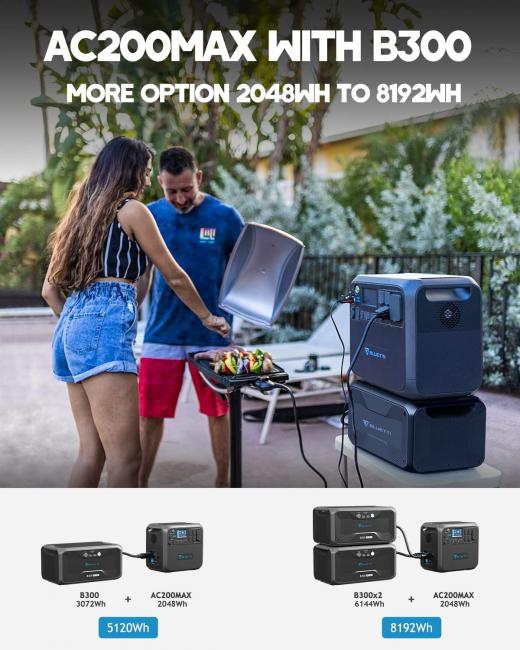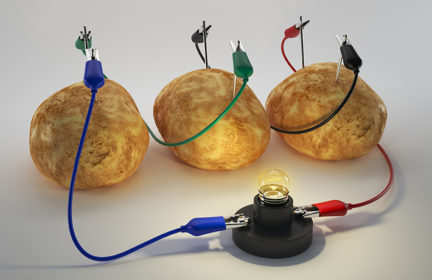Need recommendations on buying an RV system sized solar setup
I’m looking into buying some solar panels, a battery, inverter, etc. that could be used to power some small appliances (not a whole house or even air conditioning or a furnace blower—basically something about the size of an RV system) in the event of a power outage.
At the very least, setting up and using a small system will give me some idea of whether we want to install a larger system down the road.
Does anyone have recommendations as to a retailer where I could buy the solar panels and other items? It would be helpful if the retailer has actual technical support available. I know some about electrical systems but am definitely not an electrician or an engineer. Of course, I have found some retailers online, but I’m very hesitant to spend that sort of money with a retailer online without knowing much about them.
In addition, if anyone has suggestions on the brands of the panels or batteries, feel free to mention those as well.
Thanks in advance!
-
Comments (10)
-
Pops - May 19, 2022
I’ve recently been learning about and building a system, I’ve found a great reference is DIYsolarforum.com as well as this guy’s videos: youtube.com/c/WillProwse —typical internet and forum caveats apply so be sure to get confirmation on anything you read, including this.
The best advice I can give is either dedicate some time to learning lots about how the various parts interact or plan on buying a readymade package, or both —or neither and hire a designer/installer.
I bought batteries from Signature Solar in TX and an all-in-one inverter/charger/transfer switch from MPP Solar out of Utah where I also bought panels made by Trina. I’ve sourced cable, fuses, etc from various places around the web.
The big shafu comes with matching your panels with your battery charge controller. Not only do chargers have specific limits and requirements for overall panel system wattage, they have specific limits/requirements for each of amps and volts as well. Long story short, every model of panels has different specs; you can connect panels in different configurations (series or parallel or some combination) to closely match their output to your charger’s input to get the most bang/buck. Since there are a multitude of panels with a huge range of specs, I chose to get the charger/inverter I wanted then pick panels to match their specs.
I have basic household electrical knowledge but needed to learn specifics about DC and PV systems. My basic process went from fewer choice decisions to those with greater choices:
Decide overall rationale (backup first, then generation, no grid tie)
Choose system voltage (higher volts are more efficient)
Choose and purchase batteries
choose/purchase charger/inverter
choose/purchase panels…to where I am now, basic cabling, mounting and commissioning.
My particular situation is that I may or may not remain in this location and will be taking the system when I go so that needs to be considered at all levels.
I could answer basic questions, I’m no authority but might be able to recommend sources.
-
B.B. - May 19, 2022
I am at the point you were saying of matching the panels to controller. I have been given several panels, and in a giddy hurry ordered a charge controller. The controller is rated for 30 amp, but only 25 volt on the panel side… I measured the panels, and they are producing 34.6v. I now have to either modify the panels (which I really don’t want to do) or get a controller that will handle the input. Definitely a big learning curve for me on solar, but hopefully I can be up for the task.
OP, probably not a popular opinion, but I have a friend who purchased the complete system from Harbor Freight and uses it to power his portable radio setup. After adding Anderson Powerpole connectors, he has a fairly compact, reliable system that powers his 100 watt radio and a laptop. With the addition of a 22 amp hour LifePo battery (and cutting back the power a bit at night), he can run this setup well into the night. May be a good, affordable way to get your feet wet in solar and can always be used to charge phone/laptop/flashlight in a grid down situation.
-
Pops - May 19, 2022
As I understand, you need to use the rated output of the panels, which is a lab-tested maximum output. This is more than the panels will make in regular use but the max possible to keep your controller from releasing the magic smoke.
Look at this and try to locate the equivalent for your panel. The relevant part is the “STC” numbers at the top and specifically the “Open Circuit Voltage” and the “Short Circuit Current” The NMOT values give you a good estimate of real world output.
Your panels can be combined in a variety of configurations depending on how they are joined together. In a series connection -end to end basically- the amps stay the same and the volts are added together.
In a parallel connection (think of a ladder) it is the opposite, volts stay the same and amps add together.This guy does a great job of explaining connections: https://youtu.be/b2H8vpj8rQg
-
MarcusAurelius - May 21, 2022
Thanks, Pops. Very valuable information here.
-
-
RedneckContributor - May 19, 2022
The easy way is to purchase a solar generator & the largest panel it can support for DC input. I have two such units but it has been years since I purchased. I suggest you read reviews on the current crop of solar generators, to make your choice. A solar generator combines all components into one portable unit. They come in real handy during power outages. Here is one of mine charging using a panel but will charge quicker if you have electric available. Mine has a couple of 115v ac outlet plugs & several USB outlets.
-
MarcusAurelius - May 21, 2022
Thanks, @Redneck. I always like hearing you chime in on threads. 🙂
-
-
Gideon ParkerStaff - May 19, 2022
Hope you don’t mind me editing the title of this post to be a bit more descriptive of what it’s about. There have been many posts lately saying “need small solar setup” so hopefully the edited title will attract more people that have advice for your needs.
We are finishing up an article on basecamp sized solar options, so look out for that here in the future.
The best solar power station on the market that I’ve seen so far is the Ecoflow Delta Pro. Watch the below video and let me know if that is kind of what you are looking for, too much, or too little.
-
MarcusAurelius - May 21, 2022
@Gideon, This is very much along the lines of the generator for which I am looking. I had been looking at the Maxoak Bluetti generator, but this Ecoflow is impressive.
I’m looking to power a refrigerator, a chest freezer (load balancing, obviously, so not all at the same time), and perhaps a pressure cooker. We have smaller battery packs and a small panel to power electronic devices.
Anyway, I bought a Kill-a-watt and measured the appliances about six months ago, but I cannot find the paper where I wrote the wattage. One of my main concerns is finding something that can handle the starting watts on each individual appliance. The actual running watts are quite reasonable.
-
Gideon ParkerStaff - May 21, 2022
I like the Bluetti Maxoak EB240 for how economical it is. If you don’t need a ton of bells and whistles and just want a ton of battery for a cheap price, nothing beats it at $0.54 per watt hour.
Two other options if you like Bluetti are the ACP200P ($0.85/Wh) and AC200Max ($0.92/Wh). They are a bit more expensive, have less battery capacity, and weigh more than the Maxoak EB240 but use the far superior LiFePO4 batteries, are more modern and sleek looking, have more AC ports, nicer display, and many other nice features.
One neat feature about the AC200Max is that you can connect additional B300 or B230 units and have a lot larger battery capacity. Maybe this year you get the Max and then in two years you save up for an additional battery.
The AC200Max has a 4800 surge watts which will pretty much power anything you can throw at it. It’s good to check your individual appliances, but a rough guess is that a fridge or freezer will surge at like 1200-2200w.
Let me know if you have any other questions, price range, weight limits, etc and I can give you other suggestions if you want. Hope this helps.
-
-
AT - May 22, 2022
I can’t say that I’ve done exactly what you are doing, but I have some experience in other types of solar projects. We bought our house’s grid-tied system through a local Consolidated Electrical Distributors office. Locally they have staff who help design on- and off-grid systems and then sell you the parts. I think they have offices nationwide (assuming you are in the US) although I don’t know if that’s a service they offer everywhere.
Outback and Renogy both sell package solutions with Outback focusing on relatively large projects and Renogy generally a smaller scale. I don’t know what their customer service is like. I don’t see a value in name-brand panels. They tend to be 25% more expensive and may function 5% better.
Regarding RV sized systems, we have a GeoPro 19bh travel trailer with a somewhat modified system. It has 2 no-name 12v 190w panels in parallel ($200 each) and a GoPower PWM charge controller ($150). We have two Interstate 6v golf cart batteries wired in series. The good Interstate ones are ~$150, but you can get a cheaper version for less than $100 at Costco. That gives us roughly 100 Ah of usable storage (ie 200Ah total). The fridge, lighting, and TV are all 12v which is great. I’ve heard the inverter it came with is inefficient, but we haven’t ever used it. I’m not very excited about the GoPower controller, but don’t see a reason to replace it. Our battery monitoring system is just turning everything off, looking at the voltage and guessing. Over 12v is good.
Not sure if any of that is helpful. Even if you don’t DIY it, I think there is a lot of value in understanding these systems. A 12v system isn’t as complicated as the folks at Renogy would like for us to think it is. Regarding your pressure cooker, I found a video on YouTube of a guy using an RV system to run a mini-instapot. It took 17Ah out of his batteries to cook a chicken. That’s a lot less than I expected.
-
- News for the Week 2025-3-10 - 4 days ago
- News for the Week 2025-3-3 - 2 weeks ago
- News for the Week 2025-2-24 - 3 weeks ago
- News for the Week 2025-2-17 - 4 weeks ago
- News for the Week 2025-02-10 - 1 month ago
This forum is heavily moderated to keep things valuable to as many people as possible. Full community policies are here. The basics:
- 1. Be nice to each other.
- 2. Stay focused on prepping.
- 3. Avoid politics, religion, and other arguments.
- 4. No unfounded conspiracies, fake news, etc.
- 5. Debate ideas, not people.


